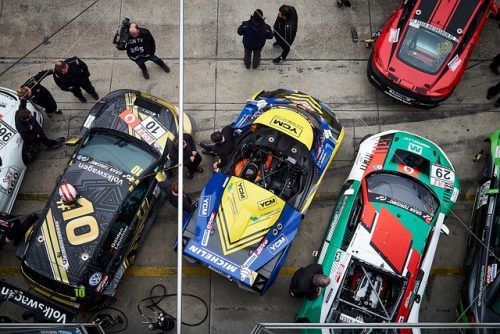Impacts of SUVs and Luxury Cars – Production to Use
SUVs are heavy-duty, high energy powered vehicles generally used for off-road transport and sporting events. Luxury cars like SUVs are also reliant on much more fuel and in both cases the manufacturers do not have sustainability or environmental concerns in mind. These are generally made for wealthy people and hence due to capitalism as it always is, the priority is not to conserve the environment.
Moreover, the production of these cars is inherently very unsustainable and a misuse of resources. The use of leather, chemicals and high grade polish with tons of chemicals in it for each car accounts for a high number of carbon emissions since they are dependent on expensive metals, multi layer painting, design, welding, detailing processes like layering with chemical formulas for protection against corrosion (this emits a high number of VOCs and fumes) and high quality rubber tires as well as high grade polish. All of these processes leave behind various levels of carbon footprint than the manufacture and production of an ordinary car.
Impacts of SUVs and Luxury Cars on The Environment:
- High Carbon Footprint: As per 2020 reports, luxury cars have a higher carbon footprint than the average car. This is because while design and the finish of these cars is important for the manufactures, environmental benefits are not. Thus, while average petrol driven luxury cars emit approx. 325 grams of CO2 per km, those that were diesel powered emit 211g of CO2 emissions per km. Moreover, cars used for sports, formula racing etc. have speed and design as their main concern which also requires a huge amount of chemicals from the paint finish to fuel consumption. All of this emits various degrees of CO2 emissions and VOCs harmful to the environment.
- Less Fuel Efficiency: Due to the large size and heavy batteries of SUVs and luxury cars, these cars need more energy to move around. In short, the more heavier a car or vehicle is, the more energy/fuel it will consume. Thereby leading to increased GHG emissions, particulate matter and soot formation.

- Resource Utilization: Due to their bigger size, different criteria for speed and design, these super cars, luxury cars and SUVs etc. have a larger need for resources to be manufactured than smaller normal cars. The extra 200kg for metal, plastic and seating altogether account for not just more fuel but also just as much resource utilization due to energy intensive processes. Expensive metals commonly used are already generated using energy intensive processes. This causes a greater degradation of the environment and further contribute to the climate change right from production stage. The aftermath of post sale activities is another concern since as mentioned above, these cars are not fuel efficient at all.
Changes In The Automobile Industries In The Face of Climate Change:
The automobile industry has been attempting to incorporate green and eco-friendly practices such as opting for vegan leather instead of animal leather for the interior, using polish with less chemicals and so on. There is a lot of innovation in terms of adopting a circular economy, responsible design and incorporating hybrid technology– electric and gasoline to make the cars just as efficient but with lower fuel consumption. Yet, there is still a lot of work to be done after the manufacturing stage especially in the post sale scenario and supply chain.
Some of the negative impacts listed above has raised concerns regarding the automobile sector. This is definitely because of the increasing urgency of climate action and reduction/ elimination of greenhouse gases of which cars are the primary source. While some have suggested to switch over to electric cars completely, this has not yet a feasible option to be adopted worldwide due to limitations and expanding on the technology. Read, Electric Cars– Eco-Friendly or Not? and Are Electric Cars and Vehicles Feasible In Pakistan Currently?

Therefore, some luxury brands have opted to provide somewhat eco-friendly models. For instance, Porsche 918 Spyder is a car offered by Porsche which has the necessary speed and design but also with an environmental responsibility.
The model is comprised just of 918 units- a smaller design and assembly than the usual 15000 parts. This is not common in luxury and supercars usually. It also possesses a responsible design by using fewer resources and importantly, it requires only 3 liters per 100 km. This is impressive considering the speed its engine can still reach on such a typically low amount of fuel than a normal sportscar.
Ultimately, these are still luxury cars and are afforded only by those who can. Therefore we still need a way to improve our electric cars as well as those driven by other renewable energy resources and make it a long lasting and viable option for the general people.
Also check out: Controlling Air Pollution Crucial for Mitigating World’s Environmental Crises
CONCLUSION:
It is really important to realize what works and does not work to help save the environment. Luxury cars in the end are meant for just that- luxury and do not really serve a practical purpose for the common man, however the emissions it produces is one of the highest out of all private owned vehicles. Thus, it is crucial to recognize greenwashing when it comes to luxury cars and SUVs where actions would not bear definitive results that would benefit the environment.
You may also like: Ambient Noise Pollution Impact On Human Health, Environment
I hope you all liked this post! Please comment below if you have any suggestions, comments, or feedback! We at #envpk love hearing from our readers! Thanks!




